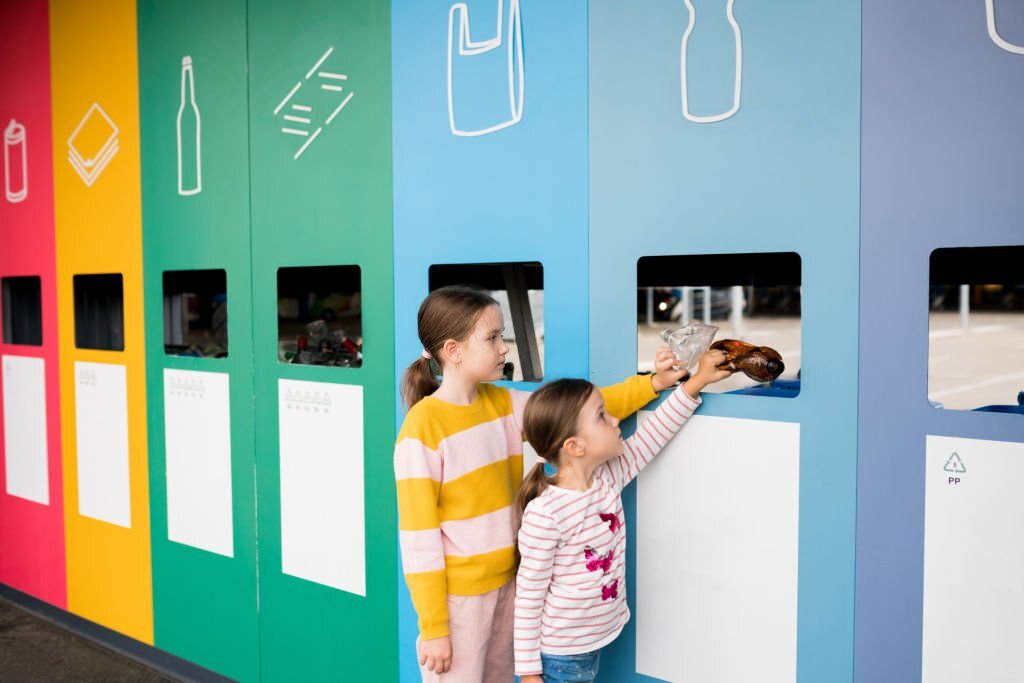Why Vending Machines Should Be Allowed In Schools? Vending machines have become a common sight in many schools across the globe. Yet, their presence in educational institutions often stirs controversy. Critics argue that vending machines are detrimental to students’ health, while proponents claim they offer a myriad of benefits. This article explores the case for allowing vending machines in schools, examining the advantages they bring, addressing concerns about nutrition, and assessing their impact on academic performance. We will also answer frequently asked questions and conclude by highlighting the importance of responsible vending machine implementation.

Benefits of Having Vending Machines in Schools:
Convenience for Students and Staff: Vending machines provide a convenient source of snacks and beverages for students and staff throughout the school day. In the hustle and bustle of academic life, having easy access to refreshments can be a lifesaver. This convenience can help students stay focused and energized, especially during long days of classes and extracurricular activities.
Revenue Generation for Schools: One of the most compelling arguments in favor of vending machines in schools is the potential for revenue generation. Schools often struggle to secure sufficient funding for various programs and initiatives. By partnering with vending machine companies or running their vending operations, schools can generate much-needed income. These funds can be reinvested in extracurricular activities, educational resources, and facility improvements, ultimately benefiting students.
Healthier Vending Machine Options: Critics of vending machines often point to their unhealthy offerings, such as sugary sodas and snacks high in fat and sugar. However, many schools have recognized the importance of promoting healthier choices. By stocking vending machines with nutritious options like bottled water, low-sugar beverages, whole-grain snacks, and fresh fruits, schools can encourage better eating habits among students. This shift towards healthier choices can have a positive impact on students’ long-term health.
Teaching Responsibility and Choice: Allowing vending machines in schools presents an opportunity to teach students about responsible decision-making. Instead of banning vending machines altogether, schools can educate students about making balanced choices. This empowers students to make informed decisions about what they consume, a valuable life skill that extends beyond their school years.
Promoting Local and Sustainable Products: Schools have the opportunity to promote local businesses and sustainable products through vending machines. By partnering with local food producers and suppliers, schools can showcase regional specialties and support their communities. Moreover, schools can emphasize eco-friendly options by offering products with minimal packaging or encouraging recycling.
Addressing Concerns: Health and Nutrition:
The Role of Schools in Promoting Healthy Choices: Schools bear a significant responsibility in promoting healthy lifestyles among students. While vending machines can offer a variety of products, it’s crucial for schools to actively curate their offerings to align with nutritional guidelines. This ensures that students have access to nourishing options while on campus.
Strategies for Offering Nutritious Vending Machine Options: To address concerns about nutrition, schools can adopt strategies such as setting nutritional guidelines for vending machine products. These guidelines may limit the sugar, fat, and calorie content of items. Additionally, schools can involve nutritionists and dietitians in selecting vending machine products to ensure they meet health standards.
The Importance of Education on Healthy Eating Habits: Beyond providing healthier choices, schools should educate students on the importance of balanced nutrition. Incorporating nutrition education into the curriculum can help students make informed choices not only in the cafeteria but also at vending machines. These lessons can foster a lifelong commitment to healthy eating.
Vending Machines and Academic Performance:
The Impact of Nutrition on Cognitive Function: Nutrition plays a significant role in cognitive function. A well-balanced diet can enhance concentration, memory, and overall cognitive abilities. By offering nutritious vending machine options, schools can contribute to improved academic performance by ensuring that students have access to brain-boosting snacks and beverages.
Balancing Nutritional Offerings with Student Preferences: While promoting healthier choices is essential, it’s also crucial to consider student preferences. A successful vending machine program strikes a balance between nutritious options and items that students enjoy. Schools can conduct surveys or gather feedback from students to ensure that vending machine offerings align with their tastes while meeting health standards.
Encouraging Mindful Consumption: Teaching students to make mindful choices at vending machines is equally important. Schools can provide resources and information to help students understand portion sizes, read nutritional labels, and make choices that align with their health goals. This fosters a culture of responsible consumption.
FAQs Why Vending Machines Should Be Allowed In Schools
Q1: Are vending machines responsible for childhood obesity?
A1: Vending machines alone are not solely responsible for childhood obesity. It is the collective influence of dietary habits, physical activity, and lifestyle that contributes to obesity. Schools can mitigate this by offering healthier vending machine options and promoting nutrition education.
Q2: How can schools ensure the quality of products in vending machines?
A2: Schools can establish partnerships with reputable vending machine companies and set clear guidelines for the types of products that can be stocked. Regular monitoring and feedback mechanisms can help maintain product quality.
Q3: What steps can be taken to regulate vending machine options?
A3: Schools can regulate vending machine options by implementing nutritional guidelines, limiting sugary and unhealthy products, and promoting healthier alternatives. This can be done in collaboration with nutritionists and health experts.
Q4: What are the financial benefits of having vending machines in schools?
A4: Vending machines can provide schools with a source of revenue, which can be used to support various educational programs, extracurricular activities, and facility improvements.
Q5: How can schools ensure that vending machines don’t disrupt the learning environment?
A5: Schools can strategically place vending machines in non-disruptive areas, such as cafeterias or common areas. Implementing time restrictions on vending machine access during class hours can also help maintain a focused learning environment.
Conclusion:
Incorporating vending machines into schools can be a win-win situation when approached responsibly. While concerns about health and nutrition are valid, schools have the power to provide students with convenient access to healthier choices and promote responsible consumption. The revenue generated from vending machines can bolster educational programs and facilities. Ultimately, the key lies in striking a balance between convenience, nutrition, and education to create an environment that supports students’ holistic well-being.
Key Takeaways:
Vending machines offer convenience for students and staff and can generate revenue for schools, which can be reinvested in educational programs and improvements.
Providing healthier vending machine options can promote better eating habits among students and contribute to their long-term health.
Nutrition plays a significant role in academic performance, and vending machines can offer brain-boosting snacks and beverages to enhance cognitive function.
Striking a balance between nutritious offerings and student preferences is crucial for a successful vending machine program.
Education on responsible consumption and nutrition can empower students to make informed choices, fostering a culture of well-being in schools.



